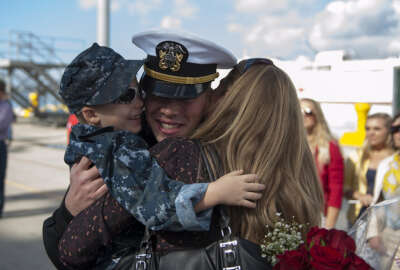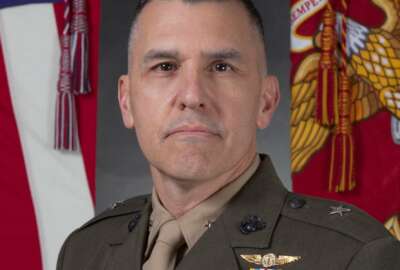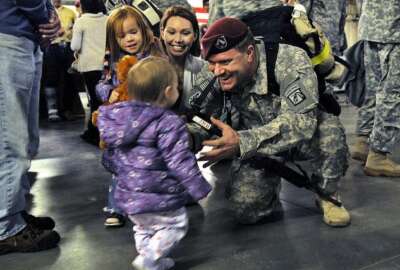
Sesame Street teams with DoD to give kids with military parents more coping mechanisms
Sesame Workshop and DoD pair up to help military families develop coping mechanisms for life after deployment and other challenges.
Subscribe to Federal Drive’s daily audio interviews on iTunes or PodcastOne.
With all the talk about readiness, bombs, bullets and pay raises, sometimes the little guys involved with the military get overlooked.
And that includes the literal little guys. Children of military families have to deal with the constant moves of military life and sometimes even cope with their parents being shipped overseas.
Those stressors can have a big impact on children who are trying to make friends, do well in school and, frankly, just be kids.
But some more than familiar faces are trying to find some new ways to help. The Muppets over at Sesame Street are adding a new focus to the work they already do with children to focus on physical and emotional health.
“We started working with military families in 2006 and part of that is creating the Sesame Street Military Families Initiative, which is comprehensive resources, videos, games and articles all available for free so that we can assist military families and their children to cope with the different challenges of relocation and deployment and homecomings and the big feelings that go with those milestones,” Dr. Jeanette Betancourt, the senior vice president for U.S. social impact at Sesame Workshop told Federal News Radio.
Sesame Street is announcing today how it will be tweaking that curriculum to better serve the children of the millions of U.S. service members around the world.
One of the tactics Sesame Street is trying to teach kids in military families is the importance of safe spaces in their minds or in the physical world when things get stressful.
“All kids, they have those feelings. The thing is military kids, my friends, they’re incredibly brave and they’re awesome and they’re superheros to me,” said Rosita de las Cuevas, a five-year-old Muppet who lives on Sesame Street. “I like to build forts with blankets and pillows and it’s so much fun. Then I go inside and it’s cozy and I bring my guitar my teddy bear and those big feelings, they feel better when I do that. When I don’t have a chance to build a fort, because I’m not in my house, I don’t want to go somewhere and build forts right? I imagine and safe space in my room with the things that I love.”
Betancourt said Sesame Street calls the tactic “Comfy Cozy Nest,” something Big Bird uses when he feels emotionally overwhelmed.
Sesame Street’s resources for kids don’t come without scientific backing either.
The program called on experts and advisers in trauma, child development and childhood resiliency.
“We gathered them together and get different insights and messages. Then what we do is create that into what we call a content framework and use that to create prototypes of the resources. In other words, we make samples of them that we go out and test with educators and other providers who are servicing military families, as well as military families themselves, to get their feedback,” Betancourt said.
Another thing Sesame Street is focusing on for military children seems simple, but means a lot in the hectic atmosphere of constant moving. Birthdays.
“It’s that idea of keeping that tradition or making new traditions that stay with the family, but in a way that you could do with the parents or caregivers who are at home as well as those who might be further away. [Sesame Street’s] resources help you do that. A child can create a birthday video with one of our muppets and give their own message, so the parent that is far away is receiving that message, but can also respond and you can share on coloring pages or games that you can do together even though you’re physically apart,” Betancourt said.
The physicality may change, but the traditions can stay the same.
“One of my favorite things is dancing on my birthday. We organize a dance party and karaoke. That is for sure and I always want my cake,” Rosita said of her birthday tradition.
Copyright © 2024 Federal News Network. All rights reserved. This website is not intended for users located within the European Economic Area.
Scott Maucione is a defense reporter for Federal News Network and reports on human capital, workforce and the Defense Department at-large.
Follow @smaucioneWFED
Related Stories






